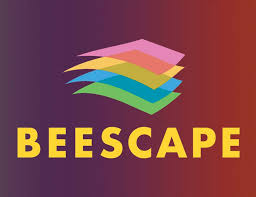Pollinators like bees are essential to maintaining healthy ecosystems and food security, yet their populations face alarming declines due to habitat loss, pesticide exposure, and climate change. For anyone invested in pollinator health—whether you’re a beekeeper, farmer, gardener, or simply someone who cares about the environment—Beescape is a game-changing resource. Developed by Penn State University’s Center for Pollinator Research, this innovative platform provides valuable insights into how landscapes influence pollinator well-being.
What Is Beescape?
Beescape is an online mapping tool designed to help users evaluate the quality of their local landscapes for pollinators. Using sophisticated algorithms and ecological data, the platform assesses three key factors that impact pollinator health: forage resources, nesting habitats, and pesticide exposure. Users can enter their location to receive detailed reports on how their surroundings score in these critical areas.
The tool is free and user-friendly, making it accessible to everyone—from large-scale farmers to hobbyist beekeepers. By providing a clear snapshot of how conducive a given area is for pollinators, Beescape empowers users to make informed decisions to create or improve habitats.
Why Beescape Matters
One of Beescape’s most significant contributions is its ability to bridge the gap between science and actionable change. The data it generates doesn’t just stay in the academic realm—it’s practical and directly useful for land management decisions. For example:
• Beekeepers can use Beescape to evaluate potential apiary sites, ensuring their bees have access to rich foraging grounds and minimal pesticide risk.
• Farmers can optimize land-use practices to support pollinator populations, enhancing crop yields while fostering ecological balance.
• Gardeners and conservationists can identify gaps in local habitats and take steps to introduce more pollinator-friendly plants or nesting areas.
A Collaborative Effort
Beescape also fosters a sense of community. By encouraging users to share their observations and contribute local data, it creates a feedback loop that benefits everyone. This collective effort enhances the platform’s accuracy and reinforces the idea that protecting pollinators is a shared responsibility.
How You Can Get Involved
Visiting Beescape is the first step. From there, you can explore your region’s pollinator landscape, learn how your actions influence bee health, and discover practical strategies to make a positive impact. Whether you plant native flowers, reduce pesticide use, or support pollinator-friendly policies, every action matters.
Beescape isn’t just a tool—it’s a movement toward a more sustainable future for pollinators and the ecosystems they sustain. Take a moment to explore the platform today and join the effort to protect these indispensable creatures.

